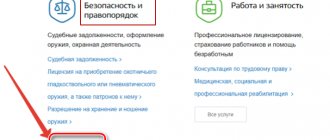ST 173.1 of the Criminal Code of the Russian Federation.
1. Formation (creation, reorganization) of a legal entity through nominees, as well as submission to the body that carries out state registration of legal entities and individual entrepreneurs, data, which entailed the entry of information about nominees into the unified state register of legal entities -
shall be punishable by a fine in the amount of one hundred thousand to three hundred thousand rubles, or in the amount of the wages or other income of the convicted person for a period of seven months to one year, or by forced labor for a term of up to three years, or by imprisonment for the same term.
2. The same acts committed: a) by a person using his official position; b) by a group of persons by prior conspiracy - shall be punishable by a fine in the amount of three hundred thousand to five hundred thousand rubles, or in the amount of the wages or other income of the convicted person for a period of one to three years, or by compulsory labor for a period of one hundred eighty to two hundred and forty hours. , or imprisonment for a term of up to five years.
Note : In this article and Article 173.2 of this Code, figureheads are understood as persons who are founders (participants) of a legal entity or management bodies of a legal entity and, through misrepresentation or without whose knowledge, data about them was entered into the unified state register of legal entities, as well as persons who are management bodies of a legal entity and who do not have the goal of managing the legal entity.
Article 173.1 of the Criminal Code of the Russian Federation
| Article 173.1. Illegal formation (creation, reorganization) of a legal entity |
|
Let us immediately note that the original version of this article, which was in force until March 30, 2015, contained a narrower wording: “formation (creation, reorganization) of a legal entity through nominees.” However, nothing was said about submitting information for making changes to the Unified State Register of Legal Entities in relation to an already existing legal entity (for example, when changing its director, introducing a new participant or leaving the previous one, etc.), despite the fact that registration of such changes may also entail entry into the Unified State Register of Legal Entities information about nominees. In the current version of Article 173.1, this gap has been eliminated.
The corpus delicti of this crime is “formal”, that is, criminal liability arises for the very fact of its commission, regardless of the occurrence of socially dangerous consequences.
The act provided for in Part 1 of Art. 173.1 of the Criminal Code of the Russian Federation, refers to crimes of minor gravity (Part 2 of Article 15 of the Criminal Code of the Russian Federation).
If any of the qualifying characteristics are present under Part 2 of Art. 173.1 of the Criminal Code of the Russian Federation, the corresponding act will be classified as a crime of medium gravity (Part 3 of Article 15 of the Criminal Code of the Russian Federation).
The statute of limitations for criminal prosecution under Part 1 of Article 173.1 is 2 years, and under Part 2 of this article – 6 years.
Object of crime. The crime provided for in Art. 173.1 of the Criminal Code of the Russian Federation, infringes on the procedure established by law for registering a legal entity (see Federal Law “On State Registration of Legal Entities and Individual Entrepreneurs” dated August 8, 2001 No. 129-FZ).
The objective side of the crime consists of active actions to create or reorganize a legal entity using dummies, or actions to submit data to the registration authority, which led to the entry of information about dummies into the Unified State Register of Legal Entities. Such actions consist of preparing and sending the relevant documents to the registration authority.
The subject of a crime is a person who has reached the age of 16 at the time of committing the crime, who has made a decision to create (reorganize) a legal entity (that is, a person who has the corresponding intent) and has taken the necessary actions for this, including (although not necessarily! ) who acted as an applicant when submitting documents for state registration.
Thus, the culprit can either directly (personally) participate in the registration of a legal entity in the name of dummies, or act through other persons (including the dummies themselves), while not legally appearing in the procedure.
The subjective side of a crime includes guilt in the form of direct intent. The culprit is aware that the formation of a legal entity is carried out through dummies without their knowledge or misled for this purpose by himself or third parties, and wants to form this legal entity (or enter information about the dummies into the Unified State Register of Legal Entities).
“Dummy persons”, based on the note to Article 173.1 (also applicable to Article 173.2), may be:
— firstly, persons who are founders (participants) of a legal entity or management bodies of a legal entity and through misrepresentation or without whose knowledge data about them was entered into the Unified State Register of Legal Entities; or
- secondly, persons who are management bodies of a legal entity and who do not have the goal of managing the legal entity.
Thus, the concept of a “dummy” has expanded significantly compared to the previous edition of the article. Based on this definition, we list possible situations when a person will be considered a “dummy”:
Option A (“without knowledge”). The person simply does not know that according to the documents he is the founder (participant) or the management body of a legal entity (the data was entered into the Unified State Register of Legal Entities without his knowledge and participation).
Option B (“by misrepresentation”). For example, a citizen, being misled, may mistakenly believe that he will act as a real founder (participant) or director (and, accordingly, actually participate in managing the affairs of the company and distributing its profits or perform the functions of an executive body and receive a salary for this). By agreeing to this, a citizen (again as a result of being misled) may mistakenly believe that a legal entity is being created to conduct legal activities.
Another option for misleading may be obtaining from a person the necessary data and signatures on documents that, as the dummy person thinks, do not relate to the registration of a legal entity at all, but relate to something completely different (for example, to the promised “employment”).
Option B (“no control goal”). Here the person is obviously aware of the situation, he could have been notified that he would be acting as a fictitious governing body and either
— agreed to it (for example, as a result of bribery), or
- was indifferent to this, or
— itself offered its “services” for a certain fee (and perhaps in a similar way “manages” more than one legal entity).
At the same time (in all of the listed varieties of option “B”), he does not have the goal of managing a legal entity.
Do the dummies themselves bear criminal liability? The answer largely depends on their awareness and consent to act in the appropriate capacity.
Figures (who are founders (participants) or management bodies of a legal entity) whose information was entered into the Unified State Register of Legal Entities by misleading them or without their knowledge are not subject to criminal liability under this article.
The situation is more complicated when the person was aware of and agreed to act as a founder (participant) or director.
As can be seen from the considered legislative definition of “dummy persons”, the case when a person is the management body of a legal entity, but does not have a corresponding goal, concerns only the management bodies (directors), but not its founders (participants). That is, only the director can be considered a “dummy” person on the basis of “lack of management goals.”
It follows that the founder (participant) under similar circumstances should not be recognized as a “dummy” person. If a person knows that he will act as a founder (participant) of a legal entity, and, at a minimum, does not object to this, such a person can no longer be qualified as a “dummy”. Accordingly (provided that there are no other persons in the legal entity who fall under the definition of “dummy”), there is no corpus delicti under Article 173.1 of the Criminal Code of the Russian Federation.
However, if the founder of the company is a person who is aware of and agrees with the specified role, but a figurehead is still present in the company (for example, as a director), then the question of his complicity in a crime may arise in relation to such a founder. Consequently, such a person, taking into account the degree of his involvement in the implementation of the criminal intent of the perpetrator, in principle, can be held accountable under Article 173.1 of the Criminal Code of the Russian Federation as a co-principal or as an accomplice.
Part two of Article 173.1 provides for possible qualifying criteria - abuse of official position and the commission of a crime by a group of persons by prior conspiracy.
Thus, a person’s use of his official position may facilitate or contribute to the commission of a crime. The answer to the question of which persons can be considered “using their official position” may differ somewhat depending on the categories of cases, which can be seen in a number of decisions of the Plenum of the Supreme Court of the Russian Federation. The range of persons “using their official position” is given, for example, in the Resolution of the Plenum of the Supreme Court of the Russian Federation dated December 27, 2007 No. 51 (clause 24) and includes:
- officials who have the characteristics provided for in Note 1 to Article 285 of the Criminal Code of the Russian Federation (persons who permanently, temporarily or by special authority exercise the functions of a government representative or perform organizational, administrative, economic functions in state bodies, local governments, state and municipal institutions , state corporations, state-owned companies, state and municipal unitary enterprises, joint-stock companies, the controlling stake of which belongs to the Russian Federation, constituent entities of the Russian Federation or municipalities, as well as in the Armed Forces of the Russian Federation, other troops and military formations of the Russian Federation),
- state or municipal employees who are not officials , as well as
- other persons who meet the requirements stipulated by Note 1 to Article 201 of the Criminal Code of the Russian Federation (according to which, performing managerial functions in a commercial or other organization, as well as in a non-profit organization that is not a state body, local government body, state or municipal institution... is recognized as a person performing the functions of the sole executive body, member of the board of directors or other collegial executive body, as well as a person who permanently, temporarily or by special authority performs organizational, administrative or administrative functions in these organizations).
The crime is considered completed from the moment information about the figurehead is entered into the Unified State Register of Legal Entities (this moment is defined as the day the corresponding entry is made in the register - see paragraph 8 of Article 51 of the Civil Code of the Russian Federation, paragraph 4 of Article 57 of the Civil Code of the Russian Federation).
For actions to prepare for a crime (which was not completed due to circumstances beyond the control of the person), criminal liability does not arise , taking into account the fact that this crime is a crime of minor or medium gravity (Part 2 of Article 30 of the Criminal Code of the Russian Federation).
Actions directly aimed at registering a legal entity using dummy persons (for example, actions that necessarily precede registration and are documented, as well as the actual submission of documents to the registration authority), if the crime was not completed due to circumstances beyond the control of the person circumstances, will be qualified not as preparation, but as an attempted crime. In this case, criminal liability arises.
Which categories of students are covered by the provisions of Articles 173–176 of the Labor Code of the Russian Federation?
Legislative support for student workers is regulated by Art. 173, 173.1, 174, 176 (Article 175 repealed) Ch. 26 of the Labor Code of the Russian Federation, depending on the type of education:
- Art. 173 - for those receiving higher education and entering relevant university programs;
- Art. 173.1 - for those continuing higher education beyond standard programs, as well as those receiving an academic degree;
- Art. 174 - for those receiving secondary vocational education;
- Art. 176 - for workers mastering basic general education programs.
At the same time, in Chap. 26 of the Labor Code of the Russian Federation considers such types of educational process as:
- full-time education;
- part-time;
- correspondence
Guarantees and compensation vary depending on the type of training.
Article 173.2 of the Criminal Code of the Russian Federation
| Article 173.2. Illegal use of documents for the formation (creation, reorganization) of a legal entity |
|
Unlike the previous version of Article 173.2, where a necessary feature of a crime was the presence of the purpose of committing “one or more crimes related to financial transactions or transactions with funds or other property,” the current version does not contain such wording. This means that criminal liability is entailed by the very fact of providing/purchasing a document or using illegally obtained personal data to enter information about a figurehead into the Unified State Register of Legal Entities - regardless of the purpose for which the legal entity is created/reorganized.
Acts provided for in Parts 1 and 2 of Art. 173.2 of the Criminal Code of the Russian Federation, relate to crimes of minor gravity (Part 2 of Article 15 of the Criminal Code of the Russian Federation).
The statute of limitations for criminal prosecution under Article 173.2 of the Criminal Code of the Russian Federation is 2 years.
Parts 1 and 2 of Article 173.2 of the Criminal Code of the Russian Federation provide for two independent elements of crime, which will be analyzed separately below. The object of the crime in both cases, as in the previous article, is the procedure established by law for registering legal entities.
When is leave for study under Art. 173 of the Labor Code of the Russian Federation is given, but without payment?
The employer must give leave, but may not pay for it without additional agreement with the employee in the following cases:
- passing entrance exams;
- final certification upon completion of preparatory courses for admission;
- passing intermediate exams when moving from course to course during full-time study;
- passing the final certification and preparing a final project during full-time study.
These holidays may be granted to persons referred to in Art. 173 Labor Code of the Russian Federation. Payment for such leaves can be made by decision of the organization (for example, if it sent the employee to study on its own initiative).
Providing a passport or issuing a power of attorney (Part 1 of Article 173.2 of the Criminal Code of the Russian Federation)
The corpus delicti is formal. The crime should be considered completed from the moment the passport is presented or the power of attorney is given to the person who plans to use these documents to enter information about the figurehead into the Unified State Register of Legal Entities. If an attempt to transfer was made, but the person (addressee) for some reason was unable to receive these documents (for example, if they were transferred not directly, but through an intermediary or otherwise), then an attempted crime has occurred.
The objective side consists of the active actions of the culprit in providing another person with an identification document, or issuing a power of attorney to another person (for their subsequent use by another person to enter information about a figurehead into the Unified State Register of Legal Entities). The very fact of creation (state registration) of such a legal entity, as well as its use to commit crimes, does not affect the presence of corpus delicti under Part 1 of Article 173.2 of the Criminal Code of the Russian Federation.
The provision of documents can be carried out either directly or through third parties, who may or may not be aware of the purpose of such provision. If such intermediaries are aware of the purpose of providing documents, their actions may be qualified as complicity.
Transfer of a document is possible at various stages - when preparing the constituent documents of a future legal entity, when presenting a document to a notary to certify the signature on an application for state registration, when presenting a document to the registration authority.
Subject of the crime An individual who has reached the age of 16 and has provided an identification document (both his own and that of third parties) or has issued a power of attorney. If the power of attorney comes from a legal entity, the person (for example, the general director as the sole executive body) who issued such a power of attorney in accordance with his powers bears responsibility.
The subjective side of the crime is characterized by direct intent: the person providing a passport or issuing a power of attorney must be aware that these documents will be used to enter information about a figurehead into the Unified State Register of Legal Entities (and not necessarily for the subsequent commission of crimes). That is. the purpose for which a legal entity is created or changes are made does not matter in this case.
If the person who presented the document or issued the power of attorney was misled regarding the criminal purposes of entering information about a figurehead into the Unified State Register of Legal Entities, such person is not subject to criminal liability under Part 1 of Article 173.2 of the Criminal Code of the Russian Federation.
Can employees of a law firm be held criminally liable?
Law enforcement agencies may try to identify the guilt of citizens who assisted in opening a legal entity. In this case, it is necessary to act very carefully, since one wrong word can put the stigma of a convicted person on a person who simply did not understand how his actions could turn out for him. In our country, assisting criminal elements is punishable by law, which means that during interrogation you must also be vigilant and ask for the help of a lawyer.
Is it the fault of the denominator or the organizer?
It becomes clear that the illegal creation of a legal entity under the Criminal Code of the Russian Federation is a criminal form of behavior for the purpose of economic fraud. If this article is directly interpreted, then the person who illegally created an individual entrepreneur for another person who signs documents without knowing that he is being framed falls under responsibility. In other words, an uninterested person, when signing certain documents, does not understand that an illegal individual entrepreneur is being registered in his name.



